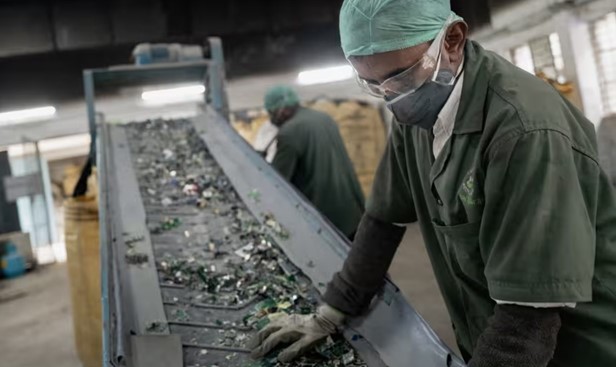
Bacteria Paving the Way for Green Tech: Extracting Rare Metals from Used Batteries
Researchers at the University of Edinburgh are utilizing microbes to reclaim valuable minerals like lithium and cobalt from old batteries, offering a promising boost for green technology. In a novel approach to combat climate change, scientists have enlisted bacteria to assist in extracting rare metals essential for developing renewable energy technologies. These microbes are proving to be vital in ensuring the continuous supply of raw materials needed for building electric cars, wind turbines, and solar panels.
Led by Professor Louise Horsfall, chair of sustainable biotechnology at Edinburgh, the project focuses on harnessing bacteria that can retrieve lithium, cobalt, manganese, and other key minerals from discarded batteries and electronic waste. Professor Horsfall emphasized the importance of these scarce metals, which are crucial for the operation of electric vehicles and other green tech devices. "As we move towards a future reliant on electricity for heating, transportation, and power, our dependence on these metals will only increase," Horsfall explained. "Metals like those used in photovoltaics, hydrogen fuel cells, and electric motors are critical to their functionality."
The project also touches on geopolitical concerns, with China dominating both the supply and processing of rare earth elements. To address this, Horsfall advocates for a circular economy where these minerals are continuously recycled. "Given the finite nature of these metals on Earth, we can't afford to dispose of them as waste. Advanced recycling methods are essential if we want to make progress in tackling global warming," she said.
The solution, according to Horsfall, lies in bacteria. These microorganisms have unique abilities, such as synthesizing metal nanoparticles, which they likely do as a detoxification mechanism. By binding to metal atoms and converting them into nanoparticles, bacteria prevent themselves from being poisoned.
Horsfall's team has already made significant strides, using bacteria to recover specific metals from dissolved electronic and automotive waste. They've successfully extracted manganese, nickel, lithium, and, more recently, cobalt and nickel using different bacterial strains. Notably, the bacteria used in these processes are naturally occurring. However, the team plans to enhance metal recovery by employing gene-edited bacteria in the future. "One of our goals is to separate cobalt and nickel during extraction, something we're currently unable to achieve," Horsfall noted.
The final phase of the research will involve demonstrating that the recovered metals can be reused in new batteries or devices. "If successful, this will mark a significant step towards creating a circular economy for green technologies. New regulations will soon require that a substantial portion of metals in new green tech devices come from recycled sources, and bacteria will play a crucial role in meeting these targets," Horsfall concluded.